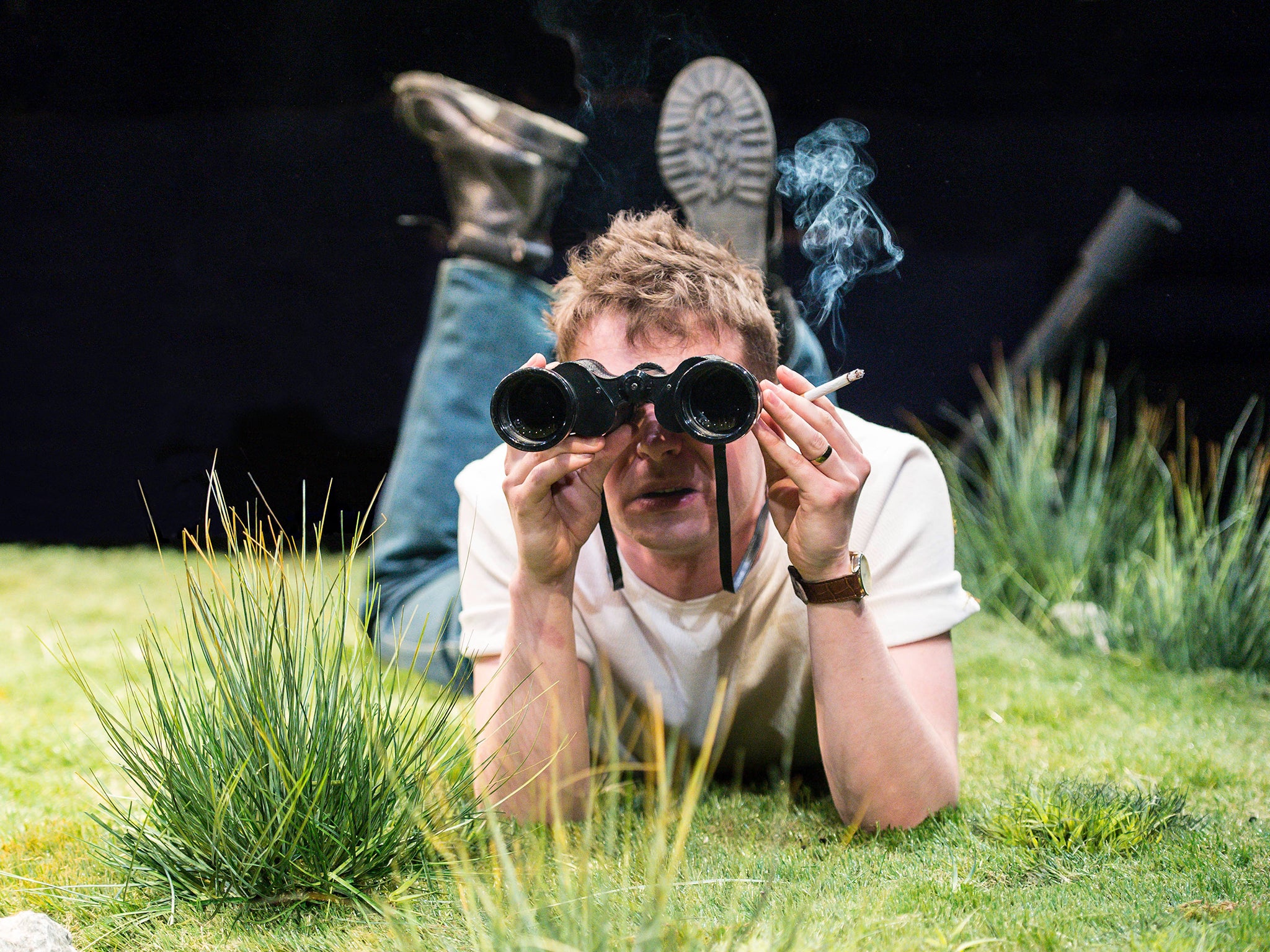German Skerries, Orange Tree Theatre, London, review: Delicate play captures the fragility of life
The revival of Robert Holman's low-key 1977 work seems unremarkable – and yet there is something there

What a delicate play this is. Alice Hamilton revives Robert Holman’s low-key 1977 slice of naturalism with care and attention. The audience sit around a tufty hillock: a headland at the mouth of the Tees, on the edge of an industrial belt in the north east. The spot is popular with birdwatchers – but it also affords views of the new steelworks, which we’ll learn threaten the birds’ habitat.
Jack is a 23-year-old factory hand, who lolls and lounges on the grass with his telescope; he meets an older schoolteacher, Martin, up there. They make polite but friendly small talk about holidays and bossy wives, not forced by Holman to be more meaningful than the situation would call for. Yet somehow it slowly comes round to ambition and responsibility, two themes which thread through the play so subtly it sounds wrong to call them ‘themes’.
Jack does want more than what his current easy job offers; his desire to get on a training course, but trembling lack of confidence in his own abilities, make for a Miller-ish dose of precarious hope, albeit one handled with a featherlight, English touch. His wife, Carol, has her feet more firmly planted on the ground: she can be brittle and impatient but there’s also tenderness to their relationship.
The couple walk up to the same spot after a night out, but an accident caused by the new steel works soon interrupts the evening, and unsettles them both. That sounds almost more dramatic than it is – Holman’s play deals in the tiny ripples in relationships, not great ruptures. Although German Skerries won a George Devine award, it’s not been staged since its original run, and it’s easy to why: there’s not much to grab hold of.
This production captures the historical moment nicely, but also feels quite quaint: the innocence and lack of cynicism of the intergenerational chit-chat sadly feels like a relic of a bygone era (Carol even obligingly gives Martin the kiss he asks for without this feeling creepy). They all exhibit a cheerfully resigned, mustn’t grumble, best-get-on-with-it spirit in the face of life’s small disappointments, strikingly different to our modern over-analysed angst. But such hindsight also turns German Skerries into a rather elegiac snapshot of a sun-drenched summer, before the decline of British industry.
George Evans as Jack couldn’t give a more open-hearted performance, which carries easily in this in-the-round, intimate space. But his dopier moments larking around with Katie Moore as Carol don’t find an easy rhythm till the final scenes – before that, they can feel an unlikely couple. Both of their scenes with Howard Ward as Martin are handled with a gentle, winning grace however.
German Skerries seems an unremarkable play – here are convincing rhythms of conversation, yes, and a little picture of individuals quietly wondering if they might spread their wings. But the production does nothing thrillingly theatrical, makes no points that ring down the ages. And yet… there is something here: a rare capturing of the fragility of life, a glimpse as fleeting as a bird taking flight.
Subscribe to Independent Premium to bookmark this article
Want to bookmark your favourite articles and stories to read or reference later? Start your Independent Premium subscription today.

Join our commenting forum
Join thought-provoking conversations, follow other Independent readers and see their replies